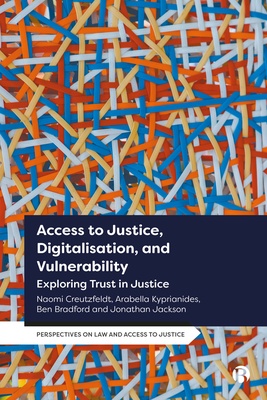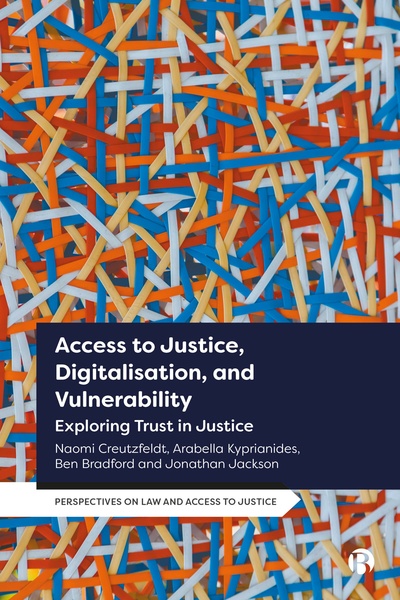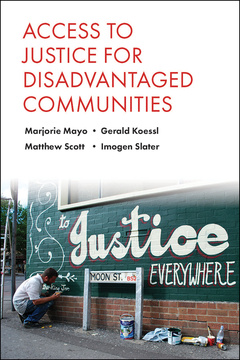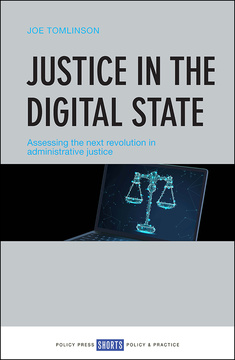Access to Justice, Digitalization and Vulnerability
Exploring Trust in Justice
By Naomi Creutzfeldt, Arabella Kyprianides, Ben Bradford and Jonathan Jackson
ISBN
978-1529229523Dimensions
234 x 156 mmImprint
Bristol University PressISBN
978-1529229530Dimensions
234 x 156 mmImprint
Bristol University PressISBN
978-1529229530Dimensions
234 x 156 mmImprint
Bristol University PressThe pandemic has significantly impacted people's engagement with the administrative justice system (AJS). As we navigate the post-pandemic era, the siloed landscape of tribunals, ombuds, advice services and NGOs face the challenge of maintaining trust in the justice system's fairness, efficacy and inclusivity.
Examining the journeys individuals undertake to seek justice in housing and special educational needs and disabilities (SEND), this book sheds light on how these institutions adapted to remote service provision.
Written by key names in the field, this important contribution uncovers valuable insights for digitalization efforts and offers concrete recommendations for improving pathways to justice.
“A timely and important book, providing a conceptually and empirically rich account of access to justice in the digital age.” Chris Gill, University of Glasgow
Naomi Creutzfeldt is Professor of Law and Society at the University of Kent.
Arabella Kyprianides is Research Fellow at University College London.
Ben Bradford is Professor in the Department of Security and Crime Science at University College London.
Jonathan Jackson is Professor of Research Methodology at the London School of Economics.
Introduction
Part 1: Situating Access to Justice
1: Legal Needs and Access to Justice
2: Trust in Administrative Justice
Part 2: Pathways to Justice
3: Two Areas of Law in Context and the Help-Seeker Journey
4: Pathways through the AJS – Housing
5: Pathways through the AJS – SEND
Part 3: Exploring Help-Seeker Journeys
6: Exploring the Role of Procedural Justice in Tribunals and Ombuds
7: Access to Digital Justice
8: Marginalized Groups and Unmet Legal Needs
Conclusion: Digital Journeys













